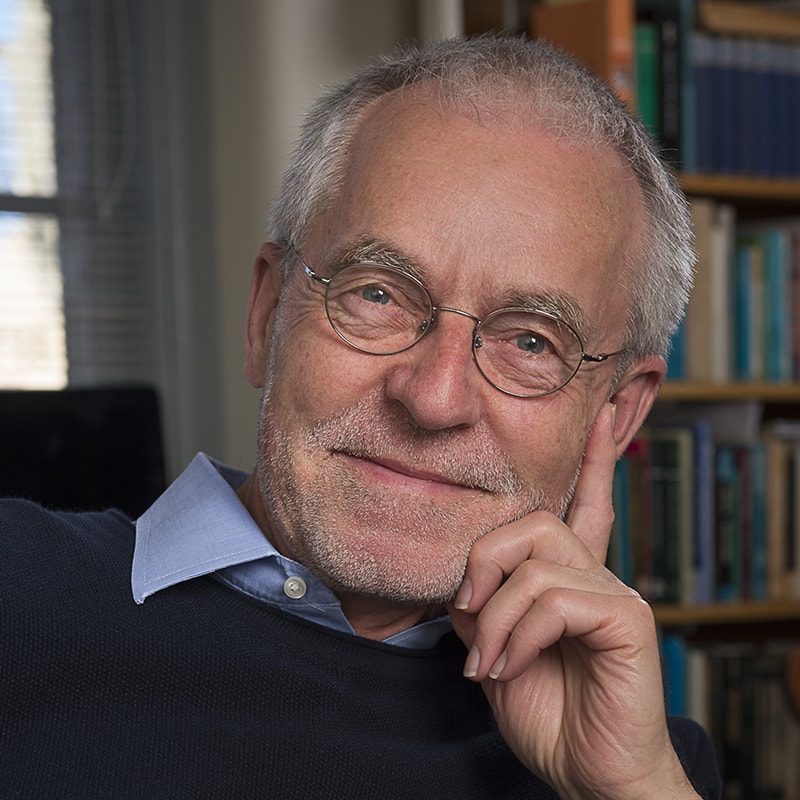
Wilfried Sieg
Patrick Suppes Professor of Philosophy
- Baker Hall 135
- 412.268.8565
Bio
My research in mathematical logic is broadly concerned with the Foundations of Mathematics and focuses in particular on proof theoretic investigations. It is complemented by work in the History of Modern Logic & Mathematics and in the Philosophy of Mathematics. The historical research has led to participation in editorial projects, which have helped to shed a new and distinctive light on the development of logic in the first half of the 20th century; these projects concern Paul Bernays, David Hilbert and Kurt Gödel.
My teaching includes Freshman Seminars, Intermediate and Advanced Lecture Courses, and Graduate Research Seminars. At its center, is the attempt to impart a deepened understanding of mathematics, its systematic internal organization and its connection to aspects of our intellectual and physical experience. This fascinating interplay of mathematical thought and experience is embedded in rich historical and philosophical contexts, from Euclid and Plato to Hilbert and Kant.
I studied mathematics, physics and logic at universities in Germany (Berlin and Münster). After completing my graduate studies at Stanford University, I taught in the Department of Philosophy at Columbia University. Since 1985, I have been on the faculty at Carnegie Mellon University. I was co-founder of the interdisciplinary program in Pure and Applied Logic that is joint with Computer Science and Mathematics. From 1994 to 2005, I was Head of the Philosophy Department. In 1996, I founded the Laboratory for Symbolic & Educational Computing (LSEC) and have been directing it since that time, first with Richard Scheines as co-director and since 2005 with Teddy Seidenfeld as co-director.
Education
1977
Stanford University, Stanford, Ph.D., Philosophy, Mathematical Logic, and Foundations of Mathematics; Ph.D.-thesis advisor: Solomon Feferman.
1971
Westfälische-Wilhelms-Universität, Münster, M.S., Mathematics and Logic; M.S.-thesis advisor: Dieter Rödding.
1969
Freie Universität, Berlin, B.S., Mathematics and Physics.
Research
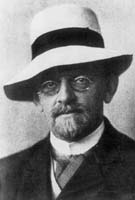 I came to philosophy through the study of mathematics: learning and doing mathematics had to be complemented by studying the "foundations" of the subject. I learned quickly that foundational positions and their mathematical elaborations are built on broad philosophical views, as can be seen from the work of Cantor, Brouwer or Hilbert. And I learned also that philosophical positions are often formed by particular views of mathematics; the work of Plato, Leibniz and Kant, for instance, is deeply influenced in this way.
I came to philosophy through the study of mathematics: learning and doing mathematics had to be complemented by studying the "foundations" of the subject. I learned quickly that foundational positions and their mathematical elaborations are built on broad philosophical views, as can be seen from the work of Cantor, Brouwer or Hilbert. And I learned also that philosophical positions are often formed by particular views of mathematics; the work of Plato, Leibniz and Kant, for instance, is deeply influenced in this way.
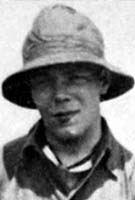 Within mathematical logic, proof theory joins most closely philosophical and mathematical concerns, starting with the work of Hilbert and Bernays. Hilbert's consistency program led to a reductive program that founds "classical" on "constructive" theories. It is here that the meta-mathematical problem of relative consistency interweaves with epistemological issues concerning constructivity. Relative consistency proofs, and a description of a general framework in which they make good philosophical sense, have been a major focus of my work. The logical techniques used in relative consistency proofs can be sharpened to extract computational information from proofs in formal theories. Crucial early results were obtained by Jacques Herbrand; hence I call these proof theoretic techniques Herbrand Analyses.
Within mathematical logic, proof theory joins most closely philosophical and mathematical concerns, starting with the work of Hilbert and Bernays. Hilbert's consistency program led to a reductive program that founds "classical" on "constructive" theories. It is here that the meta-mathematical problem of relative consistency interweaves with epistemological issues concerning constructivity. Relative consistency proofs, and a description of a general framework in which they make good philosophical sense, have been a major focus of my work. The logical techniques used in relative consistency proofs can be sharpened to extract computational information from proofs in formal theories. Crucial early results were obtained by Jacques Herbrand; hence I call these proof theoretic techniques Herbrand Analyses.
Iss ues connected to these meta-mathematical investigations of the Hilbert school led quite directly to the work on calculability by Gödel, Church and Turing. The resulting mathematical concepts (recursiveness, λ-definability and machine computability) turned out to be of practical and theoretical significance in computer science and, more broadly, in cognitive science. I have been working on the (historical) clarification of these notions and the (mathematical) explication of arguments for Turing's Thesis; ultimately it has led to an axiomatic characterization of computability with an appropriate representation theorem.
ues connected to these meta-mathematical investigations of the Hilbert school led quite directly to the work on calculability by Gödel, Church and Turing. The resulting mathematical concepts (recursiveness, λ-definability and machine computability) turned out to be of practical and theoretical significance in computer science and, more broadly, in cognitive science. I have been working on the (historical) clarification of these notions and the (mathematical) explication of arguments for Turing's Thesis; ultimately it has led to an axiomatic characterization of computability with an appropriate representation theorem.
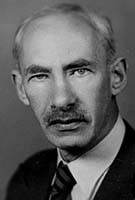 A related project, also connected directly to my proof theoretic work, is the design of a computer program that searches for proofs in natural deduction calculi. That program is called AProS, short for Automated Proof Search. The program is being used pedagogically (in a proof tutor to help students construct proofs) and psychologically (to provide computational models of mental proofs). This work is deeply embedded in the e-learning APros Project, described in detail of the homepage of the project.
A related project, also connected directly to my proof theoretic work, is the design of a computer program that searches for proofs in natural deduction calculi. That program is called AProS, short for Automated Proof Search. The program is being used pedagogically (in a proof tutor to help students construct proofs) and psychologically (to provide computational models of mental proofs). This work is deeply embedded in the e-learning APros Project, described in detail of the homepage of the project.
Results of mathematical logic do not give us precise answers to large philosophical questions, but they can force us to think through philosophical positions. Broad philosophical 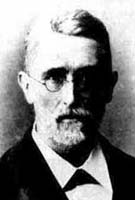 considerations do not provide "foundations" for mathematics; but they can raise mathematical problems. We can advance our understanding of mathematics only if we continue to develop the dialectic of mathematical investigation and philosophical reflection, a dialectic that has to be informed by crucial features of the historical development of its subject.
considerations do not provide "foundations" for mathematics; but they can raise mathematical problems. We can advance our understanding of mathematics only if we continue to develop the dialectic of mathematical investigation and philosophical reflection, a dialectic that has to be informed by crucial features of the historical development of its subject.
For these reasons, I have been engaged in editorial projects on the work of three major logicians, Bernays, Gödel and Hilbert. In addition I have been analyzing developments in 19th century mathematics, which resulted in a radical transformation of the subject. Howard Stein called it a transformation "so profound that it is not too much to call it a second birth of the subject." It was effected mainly by the work of Gauss, Dirichlet, Riemann and Dedekind. Hilbert's mathematical foundational work stands in this tradition.

Selected Publications
History and Philosophy of Mathematics
- Hilbert’s Programs: 1917-22; Bulletin of Symbolic Logic 5 (1), 1999, 1-44.
- Beyond Hilbert’s Reach?; in: Reading Natural Philosophy - Essays in the History and Philosophy of Science and Mathematics (David Malament, ed.), 2002, Open Court Press, 363-405.
- Dedekind’s analysis of number: systems and axioms (with Dirk Schlimm); Synthese 147(1), 2005, 121-170.
- Hilbert's Proof Theory; in: Handbook of the History of Logic, Volume 5 (D. Gabbay and J. Woods, editors), Elsevier; 2009, 321-384.
- Hilbert's Programs: Historical Roots & Systematic Directions; a collection of my papers to be published by Oxford University Press.
- Mechanical procedures and mathematical experiences; in: Mathematics and Mind (A. George, editor), Oxford University Press, 1994, 71-117.
- Step by Recursive Step: Church’s analysis of effective calculability; Bulletin of Symbolic Logic 3, 1997; 154-180.
- Calculations by Man & Machine: Conceptual analysis; in: Reflections on the Foundations of Mathematics, (Sieg, Sommer, and Talcott, eds.), 2002, 396-415.
- Calculations by Man & Machine: Mathematical presentation; in: Proceedings of the Cracow International Congress of Logic, Methodology and Philosophy of Science, Synthese Series, Kluwer Academic Publishers, 2002, 245-260.
- Church Without Dogma – axioms for computability; in: New Computational Paradigms (B. Lowe, A. Sorbi, B. Cooper, editors); Springer Verlag 2008, 139-152.
- On mind & Turing's machines; Natural Computing 6, 2007; 187-205.
- On Computability; in: Handbook of the Philosophy of Mathematics (A. Irvine, editor); Elsevier; 2009, 535-630.
- (with Buchholz, Feferman, and Pohlers) Iterated Inductive Definitions and Subsystems of Analysis - Recent Proof Theoretical Studies, Springer Lecture Notes in Mathematics (LNM) 897, Berlin-Heidelberg-New York 1981.
- Herbrand Analysis; Archive for Mathematical Logic 30, 1991; 409-441.
- Normal natural deduction proofs (in classical logic) (with John Byrnes); Studia Logica 60, 1998, 67-106.
- Normal natural deduction proofs (in non-classical logics) (with Saverio Cittadini); Springer Lecture Notes in Artificial Intelligence 2605; 2005, 169-191.
- Automated search for Gödel’s proofs; Annals of Pure and Applied Logic, 133; 2005, 319-338.
- The APros Project: Strategic Thinking & Computational Logic; Logic Journal of IGPL, 2007, 359-368.
- Searching for proofs (and uncovering capacities of the mathematical mind); in Proofs, Categories and Computations, College Publications, London; 2010, 189-215.
- (editor) Acting and Reflecting - The interdisciplinary turn in philosophy, Synthese Library, volume 211, 1990.
- (editor) Logic and Computation, Proceedings of a Workshop, Contemporary Mathematics, volume 106, 1990.
- (editor with Pfenning) Special Issue on Natural Deduction, Studia Logica, vol. 60 (1), 1998.
- (editor with Sommer and Talcott) Reflections on the Foundations of Mathematics; Association for Symbolic Logic, 2002.
- (editor with Feferman, Dawson, Goldfarb and Parsons) Kurt Gödel Collected Works, volume IV; Oxford University Press, 2003.
- (editor with Feferman, Dawson, Goldfarb and Parsons) Kurt Gödel Collected Works, volume V; Oxford University Press, 2003.
- (editor with Ewald) David Hilbert: Unpublished Lecture Notes 1917-1931; in preparation to be published by Springer Verlag.
- (editor with Ewald and Hallett) David Hilbert: Unpublished Lecture Notes 1891-1917; in preparation to be published by Springer Verlag.
- (editor with Tait, Awodey and Schlimm) Paul Bernays: Essays on the philosophy of mathematics; in preparation to be published by Open Court.
- (editor with Feferman) Proofs, Categories and Computations, College Publications, London, 2010.
Academic Appointments
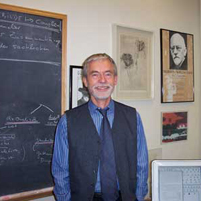 1985-Present
1985-Present
Professor of Philosophy, Carnegie Mellon University, Pittsburgh. Head of the Department of Philosophy from 1994-2005.
1977-85
Assistant/Associate Professor of Philosophy, Columbia University, New York.
1975-77
Research Assistant, Institute for Mathematical Studies in the Social Sciences, Stanford University, Stanford.
Stanford University, Philosophy, 1981/82
Ludwig-Maximilians-Universität, Munich, Mathematics, 1987/88
University of Siena, Mathematical Logic, April-May 1988
University of Milan, Computer Science, May-June 1992
Institute of Advanced Study, Princeton, June-July 1997
Carnegie Mellon Qatar, Fall 2007
Swedish Collegium of Advanced Study, Uppsala, Spring 2009.
Professional Activities
University and Department Service
Before becoming Head of the Department of Philosophy in 1994, I was member of the Faculty Senate (1988-93) and its Executive Committee (1989/90 and 92/93). In addition, I was member of the Educational Affairs Council (1988/89) and vice-chair of the Faculty Affairs Council (1989/90). I chaired the Faculty Affairs Council from 1990 to 1993 and was a member of the Faculty Review Committee (1993-94).
Director of the Logic & Computation Program (1986-94). Co-organizer of the Ph. D. Program in Pure and Applied Logic and the Department’s Director of Graduate Studies (1988-94).
Member of Editorial Boards
Journal of Philosophy, Quarterly of Mathematical Logic, Synthese.
Together with Clark Glymour and Teddy Seidenfeld I am editing the series Logic and Computation in Philosophy, published by Oxford University Press.
Member of Committees
Association for Symbolic Logic: Executive Committee, Committee for Meetings in North America, Nominating Committee
International Congress for Logic, Methodology and Philosophy of Science, Florence: Organizing Committee
Reflections Symposium, Stanford: Organizing Committe
Workshop on Modern Mathematical Thought, Pittsburgh, 1994, 1995, 1998: Organizing Committee
European Summer Meetings of the Association for Symbolic Logic 2004 and 2006: Organizing Committee
Projects supported by grants
Various aspects of my work involve extensive cooperation with a great number of colleagues and have received financial support, in particular,
(i) Editing unpublished work of David Hilbert has been supported by the German National Science Foundation; for editing the correspondence of Kurt Gödel the Sloan Foundation gave support between 1998 and 2002; finally, the National Endowment for the Humanities supported editing and translating the philosophical writings of Paul Bernays, 2000-2003.
(ii) Work on automated proof search (joint with Cornell University) and the effectiveness of computer-based instruction (with Richard Scheines) were supported by the National Science Foundation, the Buhl Foundation and by an internal Seed Grant from Carnegie Mellon. From September 2006 to August 2010, I was the PI of the NSF supported project that develops a web-based logic course treating three fundamental concepts: proof, function, and computation; see APros project.
Invited Talks
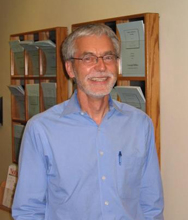 2000
2000
- Special Session “Foundational Controversy in the 1920’s: Hilbert and Brouwer”, AMS/ASL Meeting, Washington, D.C.
- International Conference “Mathematics 2000” at the École Normale Supérieure, Paris (France)
- Annual Meeting of the ASL, Urbana
- Workshop on Hilbert, Meeting of the GAP (Gesellschaft für Analytische Philosophie), Bielefeld (Germany)
- Workshop “The Logic and Strategy of Distributed Agents”, Trento (Italy)
- Sorbonne, Paris (France)
2001
- Conference “Hilbert’s Problems Today”, Pisa (Italy)
- Special Session on Proof Theory at the Meeting of the American Mathematical Society, Columbus (Ohio)
- Workshop “Logic and the Foundations of the Exact Sciences”, Bern (Switzerland)
- In-House-Conference at the Center for Philosophy of Science, University of Pittsburgh
- Logic Seminar at the University of Chicago
- Center for Philosophy of Science, University of Pittsburgh
- Department of Philosophy, University of Pisa (Italy)
2002
- Annual Meeting of the ASL, Las Vegas
- Series of three lectures, Department of Philosophy, Florence (Italy)
- Department of Philosophy, Bologna (Italy)
- Department of Philosophy, University of Pennsylvania, Philadelphia
- Two lectures in the Distinguished Visitors Program of Haverford College, Haverford
2003
- Series of five lectures, Department of Philosophy and Institute of Advanced Study, University of Bologna (Italy)
- Workshop “The confluence of ideas in 1943: sixty years of machine-oriented investigations of intelligent behavior”, Pisa (Italy)
2004
- Symposium on Foundations of Mathematics, Stanford
- Annual Meeting of the Association for Symbolic Logic, Pittsburgh
- Conference "Logicism, Intuitionism, and Formalism", Uppsala (Sweden)
2005
- Workshop "Humanities and Expertise", Carnegie Mellon
- Conference "Computing in Europe 2005", Amsterdam (Netherlands)
- Conference "Natural Processes & Models of Computation", Bologna (Italy)
- Department of Computer Science, University of Saarbrücken (Germany)
- Conference "Trends in Logic", Warsaw (Poland)
- Special session on Foundational Issues in Modern History of Mathematics and Logic at the meeting of the APA & ASL, New York
2006
- Workshop of the Israel National Science Foundation, Jerusalem and Tel Aviv
- Computing in Europe 2006, Swansea (Wales)
- Distinguished Gödel-Lecture at the Colloquium Logicum, Bonn (Germany)
- International Conference on Tools for Teaching Logic, Salamanca (Spain)
- Department of Mathematics, University of Lisbon (Portugal)
- Two lectures at the Workshop on Hilbert, Kyoto (Japan)
- Department of Computer Science, Kyoto University (Japan)
- Meeting of the International Union of the History of Science on Computability, Paris (France)
- Logic Colloquium, Indiana University, Bloomington
2007
- Workshop on Mathematical Methods in Philosophy, Banff International Research Station for Mathematical Innovation and Discovery (BIRS), Banff (Canada)
- Lecture in the series Logical Methods in the Humanities, Stanford
- Conference on Deduction, Computation and Experiment, Bologna (Italy)
- Four seminars in the Philosophy Department, Bologna (Italy)
- Lecture at New College and Merton College, Oxford (England)
- Swedish Philosophical Association Biennial Meeting (Filosofidagarna) at Umea (Sweden)
2008
- Composition Symposium at Carnegie Mellon, “Computers & Computers: making distinctions in writing”.
- Workshop on Mathematics between the Natural Sciences and the Humanities; Lichtenberg Colleg, Göttingen
- Symposium on Hilbert’s place in the foundations and philosophy of mathematics; Meeting of the American Mathematical Association, Philadelphia
- Howard Stein Lecture at the University of Chicago; “Logos, logic, logistiké – aspects of the mathematical mind”.
2009
- APA Symposium on “On-line Logic Education”, Chicago
- “Logical methods in the humanities” series at Stanford, two lectures
- Conference “The fundamental idea of proof theory”; Paris, ENS
- Conference “Philosophy and Foundations of Mathematics: epistemological and ontological aspects”; Uppsala, SCAS
- Friedman Conference in Columbus (Ohio)
- Conference on Gentzen and Proof Theory, Leeds (England)